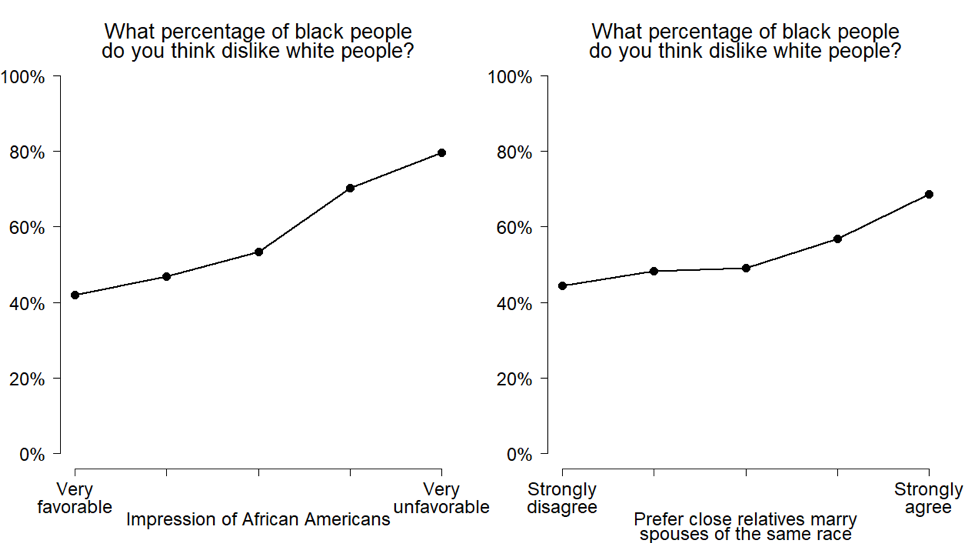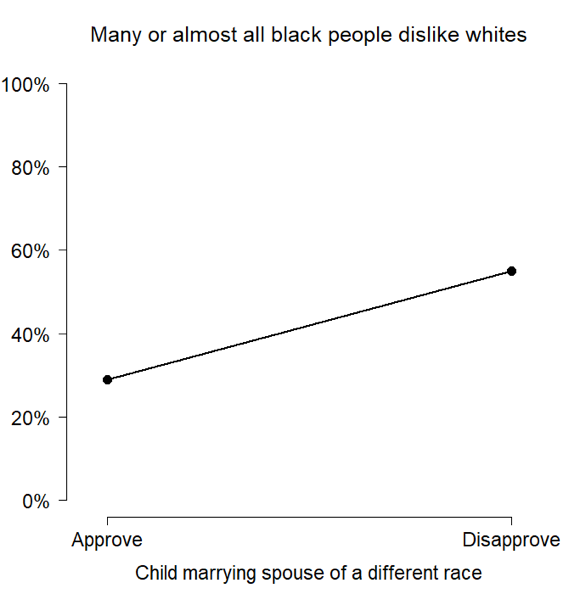President Trump took to Twitter Monday morning to accuse Spike Lee of a “racist hit on your president” after the director used his Oscar acceptance speech to encourage Americans to mobilize for the 2020 election to “be on the right side of history.”
Trump’s tweet raised eyebrows, since Lee’s speech did not mention the president. Even on Fox News, Brit Hume pushed back against the president’s tweet.
But it’s hardly the first time Trump has accused a prominent African American of racism. In November, for example, PBS’s Yamiche Alcindor asked Trump whether his rhetoric is “emboldening white nationalists.” Trump replied by saying, “That’s such a racist question.”
The president’s recent accusations of black racism are part of a longer and larger pattern. An August 2017 analysis by The Post’s Christopher Ingraham found that Trump is three times more likely to accuse African Americans of racism on Twitter than whites:

Source: Trump Twitter archive
The president’s recurring charges of racism are ironic to say the least. Trump has made a number of statements attacking racial and ethnic minorities, while also complaining that Democrats have used the “tired disgusting argument” of racism against him and his supporters.
Trump’s accusations of black racism may be hypocritical, but they’re not surprising. After all, whites who hold unfavorable views about African Americans believe that blacks are likely racist.

In 2012, I asked a nationally representative sample of 1,000 Americans what percentage of black people they thought disliked white people. The graphs above show that whites who have unfavorable views of African Americans and who want their close relatives to marry same-race spouses perceive the most anti-white bigotry among blacks. The most racially biased whites thought that over two-thirds of black people dislike whites.
A similar pattern emerged in a December 2006 CNN/ORC Poll, which asked its participants whether they thought “only a few black people dislike whites, many black people dislike whites, or almost all black people dislike whites.” The display below shows that whites who disapproved of their son or daughter marrying someone from a different race (24 percent of whites in the survey) were nearly twice as likely to say many or almost all African Americans dislike white people.

These results are consistent with prior research that shows that African Americans who have the most anti-white and anti-Semitic beliefs are most likely to think that whites and Jews dislike them. As Paul Sniderman and Thomas Piazza explained, “Believe a group of people is reprehensible and you give yourself a reason to believe that they are badly disposed toward you. Believe that they are badly disposed toward you, and you give yourself a reason to believe that they are reprehensible.”
Either way, it’s not surprising that the most prejudiced whites think most black people are racists. Nor is it surprising that a president who most Americans think is racist is quick to charge black people with anti-white racism.



